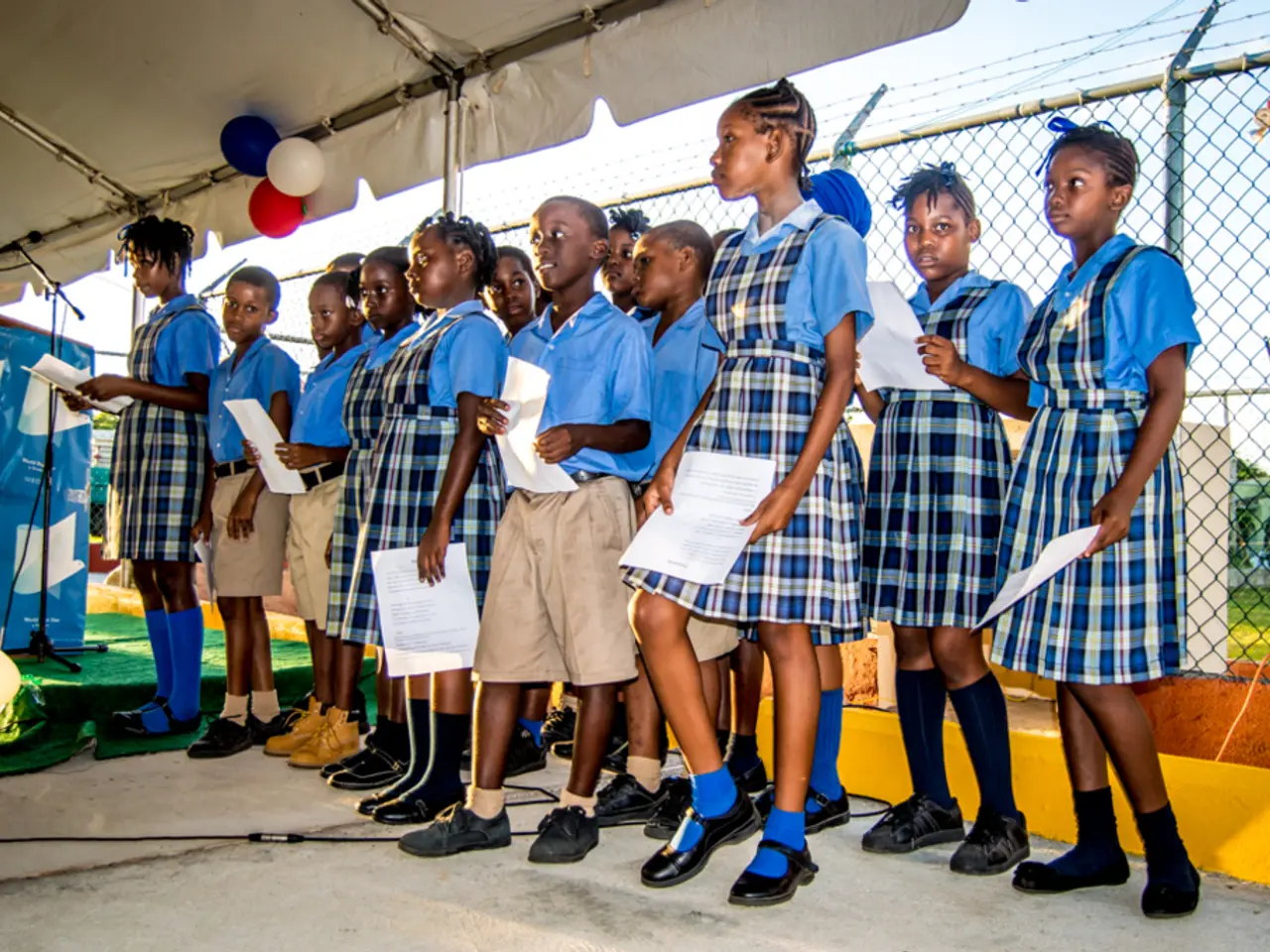High school debaters unite in shared discussions on the debate platform
The National Speech and Debate Tournament: A Platform for Critical Thinking and Political Discourse
The National Speech and Debate Tournament (NSDT) in Des Moines, Iowa, recently concluded, serving as a significant platform for high school students to engage in critical thinking and political discourse. With a membership of nearly 3,800 public and private schools, the tournament has grown from a regional event to a nationwide competition, fostering dynamic debates on contemporary issues.
One such student, Macon Smith, a 17-year-old high school junior from Bob Jones Academy in Greenville, South Carolina, participated in the tournament. Macon specialised in the Lincoln-Douglas Debate, a competition modelled after debates between Abraham Lincoln and Sen. Stephen Douglas. In this format, students have 40 minutes to set up their arguments, cross-examine each other, and sway the judges.
Macon, like many other participants, had to tackle difficult, controversial, and timely topics during the competition. This engagement with complex, polarized subjects is a key aspect of the NSDT, as it enhances students' ability to analyse, articulate, and rebut competing views.
The impact on students' critical thinking and political discourse is considerable. Participation in these debates develops rigorous reasoning skills, informed argumentation, and the ability to navigate nuanced issues — all crucial for democratic engagement and civic discourse. Students learn to dissect problems, consider multiple perspectives, and defend their positions persuasively under pressure.
However, not all educators share the same enthusiasm for these debates. Dennis Philbert, a coach from Central High School in Newark, New Jersey, fears for his profession due to the scrutiny educators are under when engaging with controversial topics. This hesitancy is not unfounded, as certain states may impose restrictions on such activities.
Despite these challenges, the NSDA aims to double its membership in the next five years, reflecting the growing importance of critical thinking and political discourse in schools. Teachers like David Yastremski, an English teacher at Ridge High School in New Jersey, acknowledge that it's a major time commitment to dedicate their evenings and weekends to the events with little supplemental pay or recognition.
In Washington state, Callista Martin, a 16-year-old rising senior from Bainbridge High School, also participated in the tournament but didn't make the semifinals. Despite this, Callista is coaching both her classmates and herself due to a lack of coaches at her school. Since falling in love with speech and debate as a freshman, Callista has devoted herself to keeping it alive at her school.
In an interesting twist, Callista and Macon met online this year to scrimmage with someone they hadn't practiced with before. This digital connection highlights the evolving nature of speech and debate, as students from different parts of the country connect and learn from each other, transcending geographical boundaries.
In conclusion, the NSDT continues to evolve, providing a preeminent national forum where high school students debate complex and often controversial topics. This evolution enhances critical thinking abilities and equips students to contribute meaningfully to political and social discourse. Despite the challenges, the tournament's impact on students' critical thinking and political discourse is undeniable, preparing them for more thoughtful participation in political dialogue and better preparation for leadership roles that require nuanced decision-making.
[1] National Speech & Debate Association. (n.d.). History. Retrieved from https://www.speechanddebate.org/about-us/history/
[3] National Speech & Debate Association. (n.d.). The Benefits of Speech and Debate. Retrieved from https://www.speechanddebate.org/about-us/impact/
- The National Speech & Debate Association (NSDA) aims to double its membership in the next five years, signifying the growing importance of education-and-self-development opportunities like debate and critical thinking in the public eye.
- In an era where innovation in education is paramount, the NSDT stands as a beacon for fostering dynamic discussions on general-news topics, instilling essential political, social, and analytical skills, while addressing the issue of inequality by providing a platform for students from various backgrounds.
- Beyond the tournament, students like Callista Martin from Bainbridge High School continue to learn from each other, proving that digital platforms can bridge geographical gaps and contribute to overall learning and development — a significant step forward in promoting self-development and understanding in the changing dynamic of the modern world.




